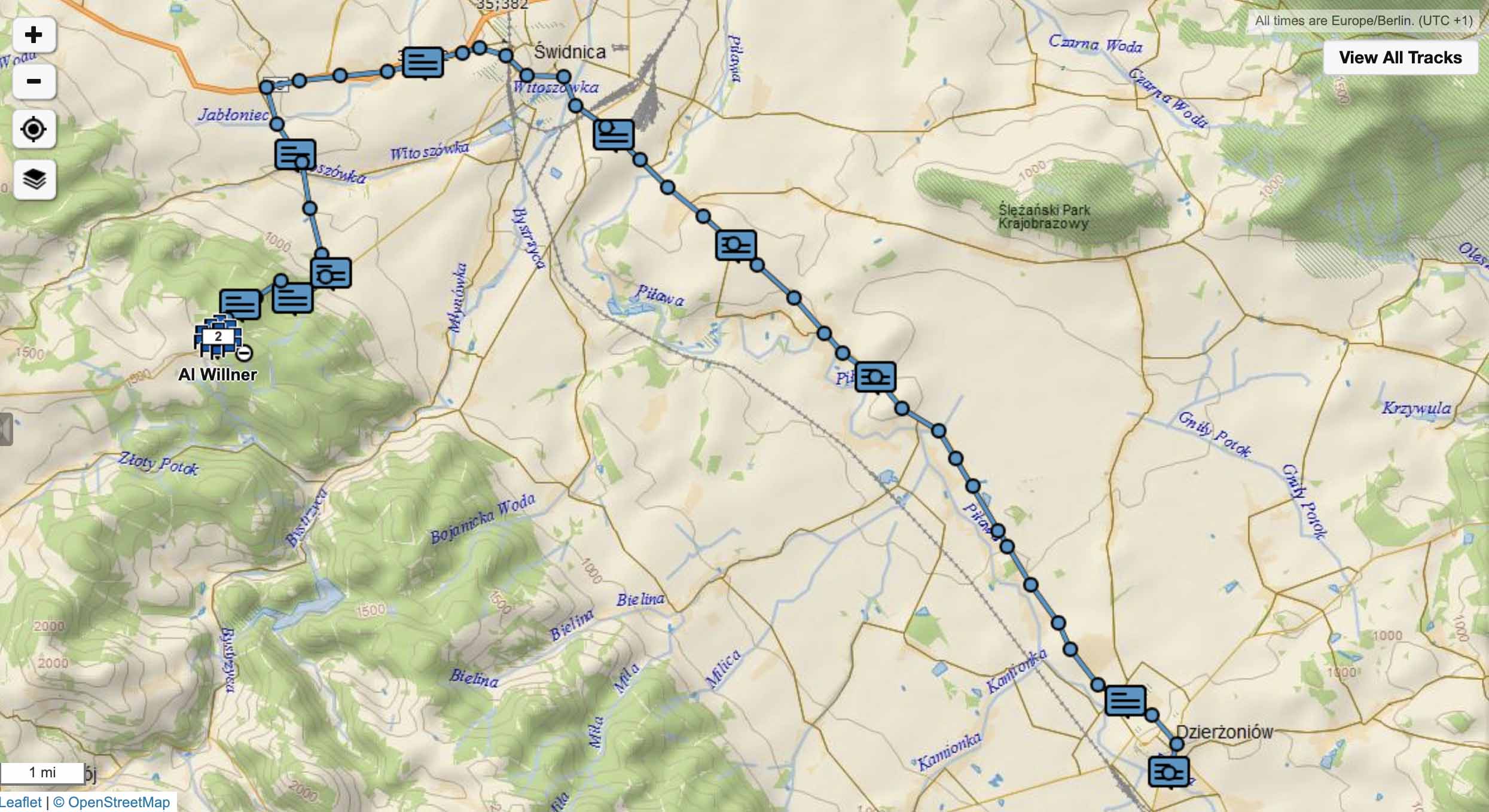
Al and Mike pushed hard today. Up early and on the road they covered 20 miles with tough going on snow covered mountain roads in just above freezing temperatures. The Death March, as historical documents showed, veered east instead of continuing in a more northerly and direct route to the collection point of numerous death marches at the Gross-Rosen concentration camp. Al speculates that possible Soviet Army advances west of the more direct route may have forced the Nazi SS soldiers to reroute via the mountains. More research on this needs to be done.
Gross-Rosen concentration camp was liberated on February 13th 1945 approximately 10 days after Al's father, Eddie Willner, arrived there at the end of his 13-day Death March from Blechhammer. Eddie Willner says that he was moved out via truck and train transport a few days after he arrived to Buchenwald concentration camp further into Germany.
Scenes from the walk | Day 9











There is still a small Jewish community in Dzierzoniow. According to Marek Huf, the Chairman of the Jewish Society and caretaker of the cemetery, there are 25 members of the community.


Mike Bayles, former US Army Colonel and nurse and long time friend and hiking buddy of Al's who has accompanied him on treks in the United States and Africa, reflects on the Walk in Remembrance | (as dictated to voice transcribing program while in camp)
First, he is my good friend and we have had some great adventures together. We make a pretty good team as we challenge ourselves, and we have many common interests that we enjoy talking about as we walk. I know this particular adventure holds a very deep meaning for him, and I am happy to share these experiences with him.
Additionally, as a student of history, I wanted to learn more about the Holocaust, World War II, and experience some other cultures. While the story of the Holocaust is filled with atrocities, it is a remarkable testimony to the human spirit as well. As we walk along the route that the death march took, we consider what the potential hardships experienced might have been. Obviously, we cannot come anywhere close to that as we are doing the walk under uniquely different circumstances. But the logistics for the Nazis to have considered a task as monumental in moving 4,000 sick and malnourished prisoners along country roads and through fields certainly tests the limits of credulity. Even more remarkable, and the question that we all keep considering is, how was it humanly possible for these people to press on, day after day, with no fat or energy stores, in a Polish winter where the temperature averaged between five and 14° F during that 13 day period. The Nazis did not give them very much food, so their energy source was from what they could steal and the kindness of strangers along the way. The fact that they were ill clothed and not very well shod, made it quite likely that they experienced hypothermia and frostbite. As we considered ways that they might have avoided frostbite, we think maybe they just put their hands in their armpits and down their pants, trying to keep their fingertips in contact with warmer parts of their body. Perhaps for the toes, it was simply the fact that they kept moving. That may also help to slightly reduce the risk of hypothermia. As far as having the energy to keep going, probably the most important thing was having the right frame of mind. Eli Wiesel describes in his book “Night“ that Hope was the most important thing to keep people alive. And Al says his father had said that he always knew he would survive the war. So whether it is having a loved one that you hope to be reunited with, or perhaps some unfinished business to attend to, it is these kinds of things that contributed to the survival of those that made it. And while many died, as Al points out, many stuck it out and made it out alive.
This has been a great experience, meeting many Polish people who expressed interest in an our purpose and graciously offering a great deal of assistance. Many gracious hosts, others who have pointed us in the right direction, opened up their facilities for our use, and wanting to show us Polish hospitality. Al remarked that the heart of Poland truly resides in its people, and I could not agree more. I would love to bring my family back here sometime!
Finally, I really like backpacking, and have not had the opportunity to do much of it over the last year or so, so it is great to get back out on the road.










